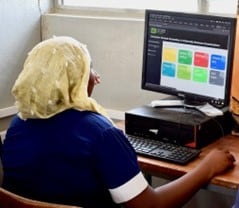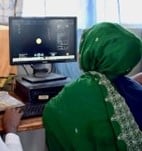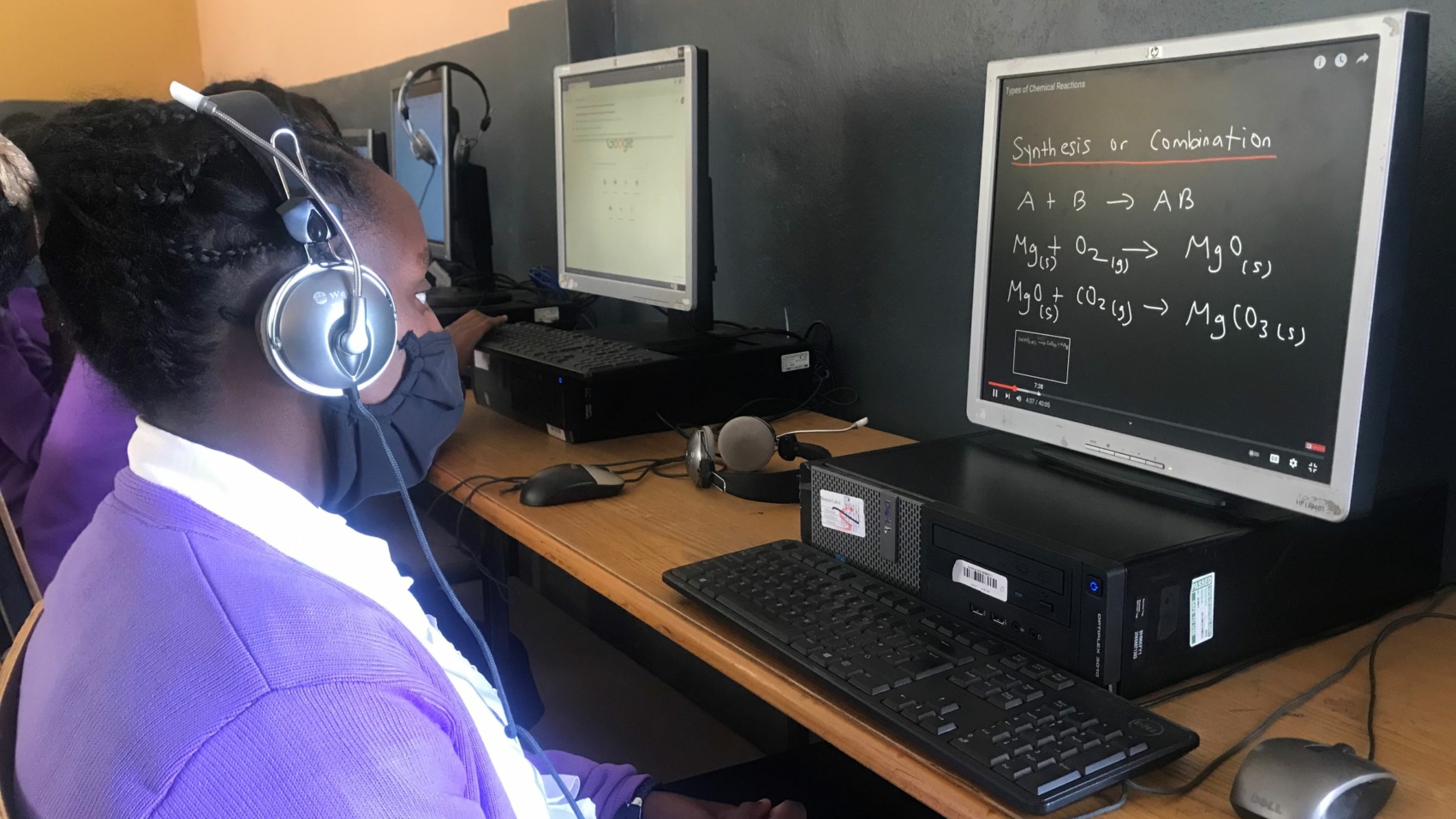Today, we shine a spotlight on some of the incredible women and girls teaching and studying science and technology with the help of Camara Education. Camara Education is not just transforming classrooms; it’s breaking gender stereotypes and ensuring that every girl has equal access to the tools of the future. Let’s honour the women & girls leading the charge, making education inclusive and accessible for all. Together, we are building a world where education knows no bounds.
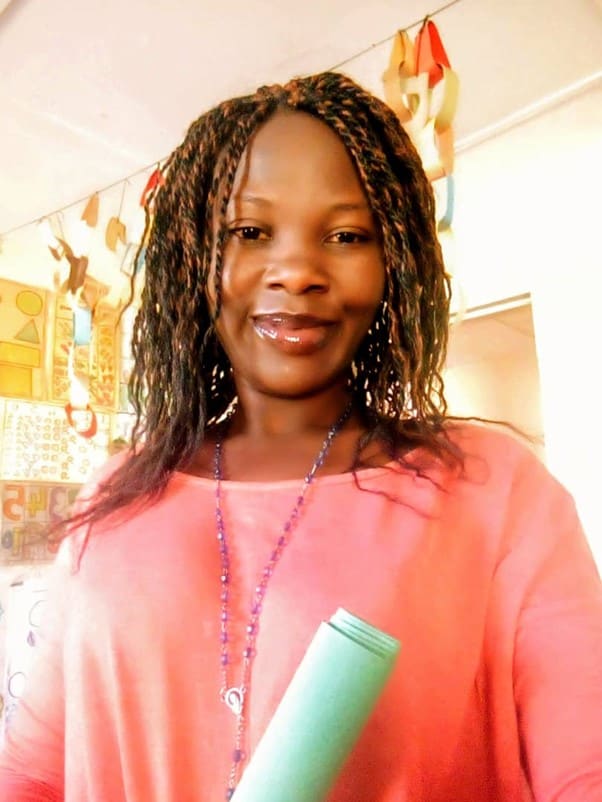
Kamara Nyirenda is a teacher at Shitima Secondary in Zambia who has recently undergone training on the computers in the lab installed at her school. She says “I have benefited as a teacher from the skills and knowledge imparted, and the learners will benefit as well and be able to move forward with technology. To me as a teacher from now onwards, no more using manual because my life has been made easy.”
Meanwhile in Ethiopia, Hanan Nasir is an ICT club member and student at Hayrenzi Secondary School.
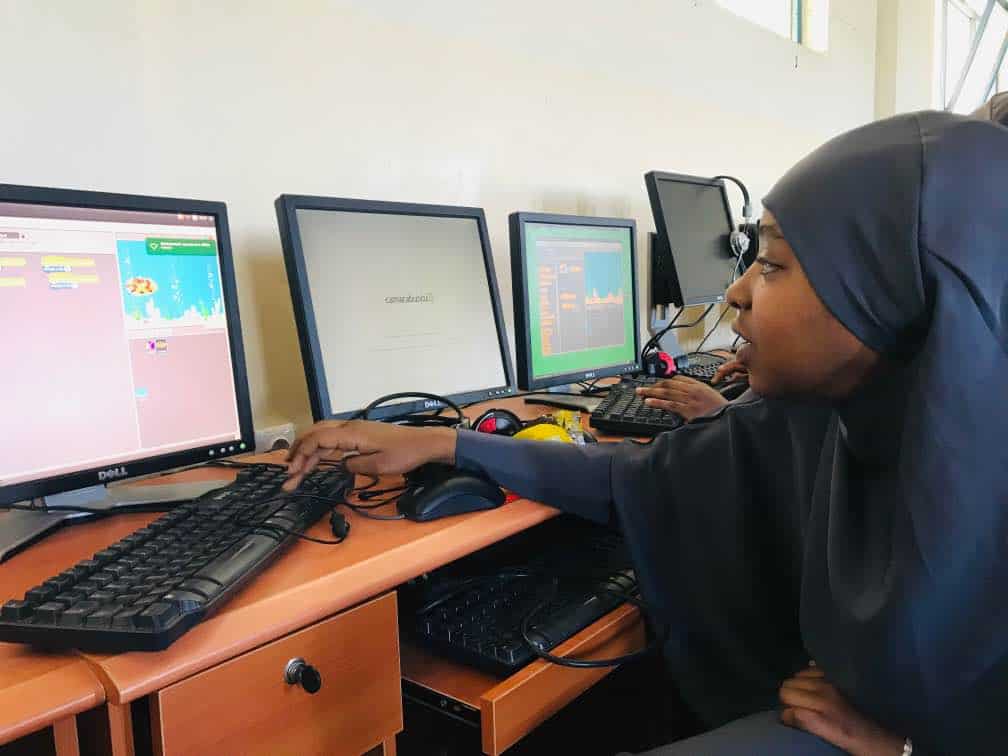
Hanan says “Since I started learning in this school I have been attending e-learning classes and I have been getting so many benefits by using these computers. I am a natural science student, and the main subjects are maths and physics. Now I am able to learn more by referring to different content and videos. The videos on physics subjects helped me a lot more than the lessons I take from the classroom. Not only for me but for the other students as well, especially for students who came from a very remote area, most of them don’t even know what a computer is. Now they can learn more about technology and use a computer and this is a big change for us. I have taken code training on Scratch from Camara and now have additional knowledge on coding. I want to become a software engineer and the basis for that is coding.”

Hewan, Yordanos, Feven and Rakeb are grade 11 students at Girls’ Cathedral School in Addis Ababa, Ethiopia. “We have formed an ICT Club and started to practice more on the computers. Without getting frustrated we can easily learn in a fun way. We are also motivating and following up with other students to use and learn more about advanced technology. We have improved our academics.”
And finally, a parent’s viewpoint. Amina Ali’s daughter attends Mille Secondary School in a rural region of Afar in northern Ethiopia. She says “Even seeing girls in school, let alone using technology, makes me very happy. We have an extremely distinctive society when it comes to raising girls in our area. The majority of girls were not permitted to attend school, were forced into arranged marriages, and were forced to miss school because they were menstruating. But things are progressively changing now, and it’s wonderful to see girls being given the chance to use technology to help their education and learn more about the outside world. I’ve seen how helpful computers are even now that our daughters are becoming more interested in the future thanks to the new PCs. I have observed how easy the Camara computers can be, even when used without a teacher’s assistance.”
